 In 1879 Cristoforo Benigno Crespi, a wealthy businessman in the cotton industry bought a piece of land in the peninsula of Orta San Giulio.
In 1879 Cristoforo Benigno Crespi, a wealthy businessman in the cotton industry bought a piece of land in the peninsula of Orta San Giulio.
The plot of ground consisted of a farmhouse with direct access to the lake and it involved part of the ancient fishermen village called Ortello, that was completely destroyed to build the new property.
The Villa was born as the holiday resort of the Crespi’s.
The house was dedicated to Mr Crespi’s wife, Pia Travelli and its former name was “Villa Pia”, as we can still read on a side gate.
The architect charged with the construction of Villa Crespi was Angelo Colla (1827-1892), one of the most famous architects in Milan at that time.
Thanks to his illustrious friendship with the senator Tullo Massarani, Colla got important assignments in Milan and in 1877 they became members of the Commission for the Cultural Heritage and the fine arts.
During this period, when he was at the height of success, he was charged with the construction of Villa Crespi, a three-floored moorish palace influenced by Mr Crespi’s passion for the Middle East, usual destination of his business trips. An outstanding minareth stands out from the palace, overlooking the park and the horizon.
Angelo Colla didn’t receive any particular request for the realization of the Villa. He was simply asked to create a masterpiece without precedent, a unique example of moorish arquitecture, extremely new in the place where it would have been built.
Later, a fountain, a dependance and a stable near the shore of the lake were erected on the same property. Despite the superb result of his work, Angelo Colla was widely criticized at the end of his work.
The Crespi’s
In 1877 Mr Crespi founded a factory village in Capriate (Lombardia), called in his honour “Crespi-D’Adda”, nowadays Unesco heritage site. The Crespi’s got very rich thanks to the cotton trade and the innovative manifacturing system adopted in their plants.
Cristoforo Benigno Crespi had five sons: Silvio Benigno, Bice, Maria, Daniele (the one who squandered part of the family patrimony in ruinous investments) and Guido (dead young)
In 1886 the family left Busto Arsizio and moved to Milan. Cristoforo Benigno was 51.
In 1906 he was struck down by an ictus.
His eldest son Silvio Benigno, a man full of talent and culture, took over the reins of the father’s business in 1889, when Villa Crespi was finished after 18 years of works.
He became as well a member of the Italian Parliament (1899-1919). He died in 1944.
His uncle, Benigno Crespi (brother of Cristoforo Benigno) bought “Il Corriere della sera” and soon it became one of the most important Italian newspapers.
The palace was owned by the Crespi’s untill 1929. After a hard crisis of the factory the family was obliged to sell the property
From 1929 to 1945 the property was bought by the noble family Fracassi Ratti Mentone di Torre Rossano and in this period the Villa was often visited by King Umberto di Savoia
From 1945 to 1949 the villa became property of the family Cardano
After being for some years a spiritual centre the villa became an hotel in the 1990s.
Inside the Villa
Villa Crespi originally was the holiday house of the family. The decorations on the walls are made of stucco of the highest quality according to the Spanish and Middle Eastern architectural tradition. The same tradition that we find inside, thanks to the arches of the rooms.
From the top of the minareth the view over the lake and the surrounding mountains is breathtaking.
One of the most impressive features of the Villa is the floor of the former lobby (today the reception area of the hotel). It is a mosaic work, according to a style used in Venice during the former centuries. On the ground floor there are 5 rooms, everyone differently decorated according to the architectural stile of the time.
The finest marbles were widly used for the construction of the columns inside and outside the building.
The huge park was designed by a famous gardens architect, Enrico Combi but during the years it has been changing and today it is much smaller than the original project.


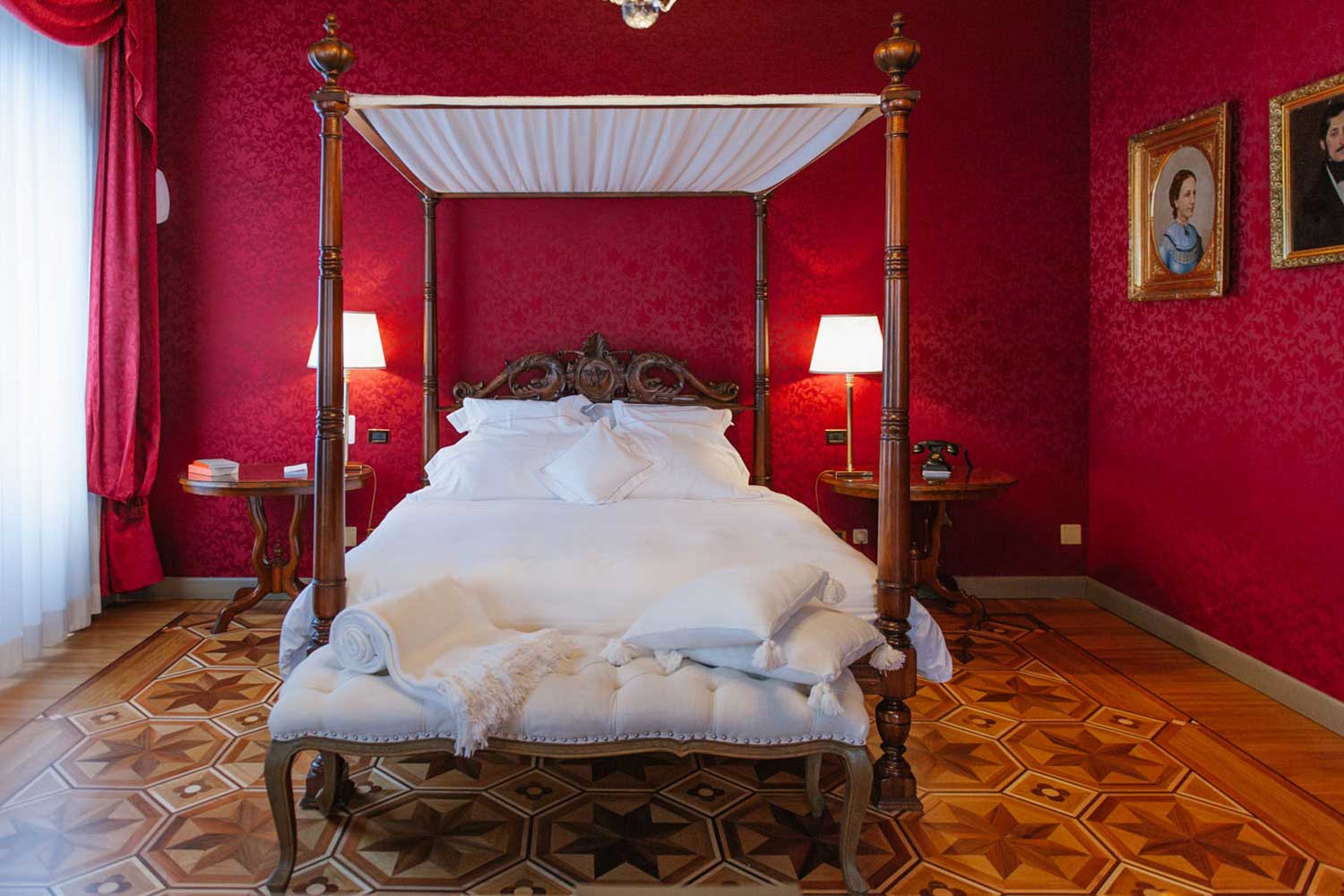
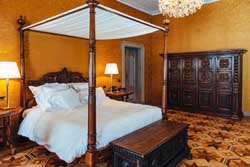
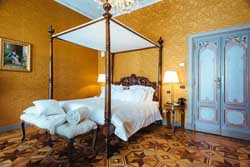
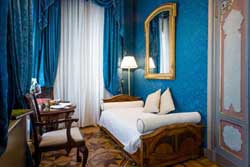
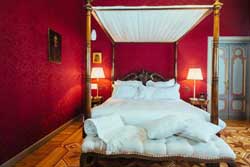
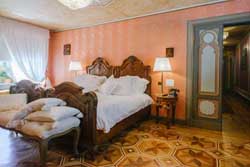
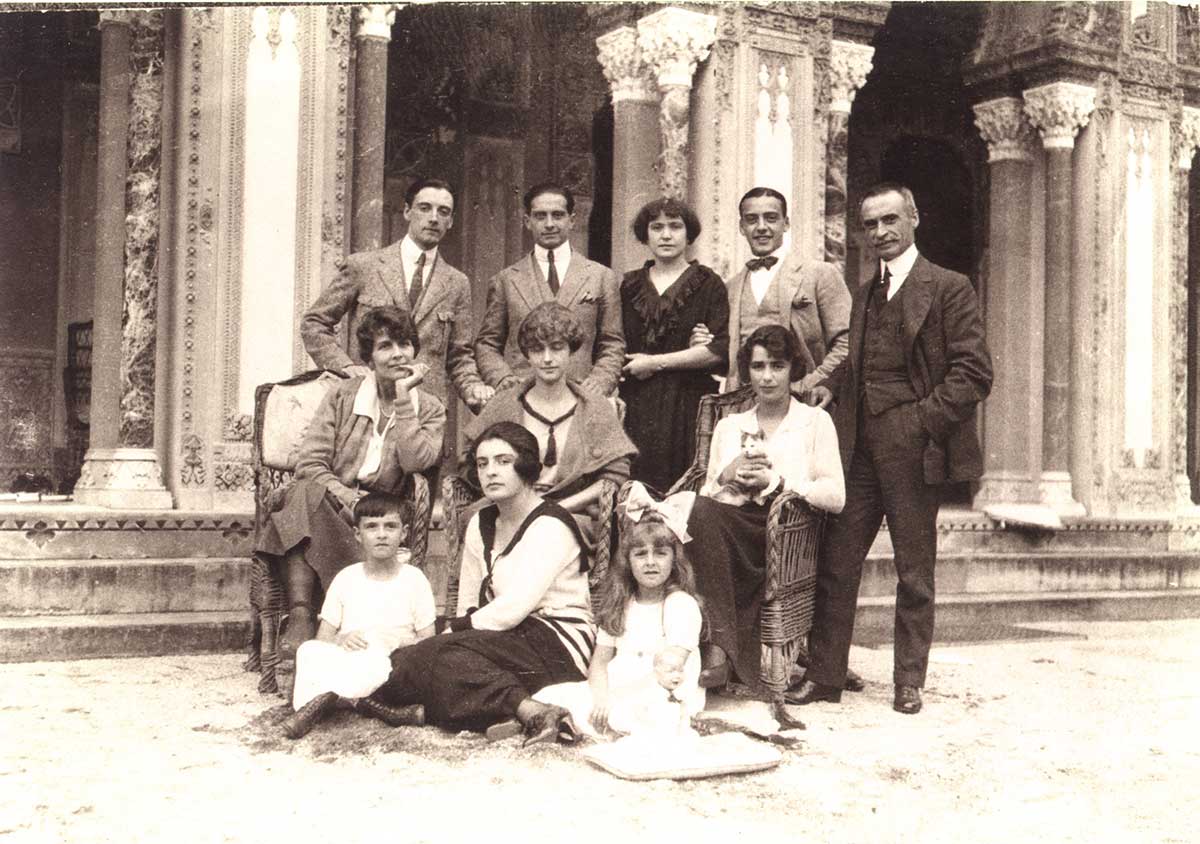 In 1879 Cristoforo Benigno Crespi, a wealthy businessman in the cotton industry bought a piece of land in the peninsula of Orta San Giulio.
In 1879 Cristoforo Benigno Crespi, a wealthy businessman in the cotton industry bought a piece of land in the peninsula of Orta San Giulio.